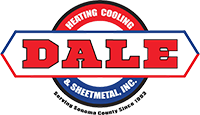The concern for our environment is driving more thoughtful practices in various industries, including the field of Heating, Ventilation, and Air Conditioning (HVAC). When you replace an old air conditioning unit with a new one, you might wonder what happens to the old unit. This article explores the recycling process of major appliances, including AC units, with an emphasis on the protocols followed in California.
Recycling of Major Appliances
When it’s time to say goodbye to old appliances, the good news is that many of them are indeed recycled. Most major appliances contain scrap metal, which can easily be recycled and reused. However, some appliances contain materials that can pose potential health risks. In California, these materials must be managed in compliance with the Materials that Require Special Handling (MRSH) protocol.
Defining MRSH Appliances
In addition to air conditioners, major MRSH appliances include several household essentials. All of them must follow proper MRSH recycling protocol as guided by a Certified Appliance Recycler.
- Furnaces: These heating systems must be handled with care due to their complex components.
- Hot Water Heaters: As with other MRSH appliances, these must be processed according to the proper recycling protocol.
- Stoves and Microwaves: Recycling these involves handling various metals and electronic components.
- Refrigerators and Freezers: These appliances often contain refrigerants, which must be managed appropriately.
- Washers and Dryers: The proper handling and recycling of these appliances help prevent environmental contamination.
- Dehumidifiers: As with air conditioners, these must be handled according to specific guidelines.
Components/Materials Triggering an MRSH Classification
The goal of MRSH classification is to identify and remove hazardous materials from major appliances. These materials require special handling and include:
- Capacitors and Components: These can contain harmful substances like PCBs or DEHP.
- Refrigerants: Found in refrigeration or air conditioning units, these may include CFCs, HCFCs, and other non-CFC replacement refrigerants.
- Mercury: Used in temperature control devices and switches.
- Used Oil: Specific to major appliances.
- Other Potentially Hazardous Waste Material: Any other material considered hazardous when removed from an appliance.
MRSH Recycling Protocol
The MRSH Recycling Protocol is an essential set of guidelines that govern the safe handling and recycling of Major Appliances Requiring Special Handling (MRSH). The protocol ensures that potentially harmful materials contained within these appliances are identified, removed, and managed appropriately. By adhering to these regulations, recyclers contribute to a greener environment, preserving natural resources, and protecting public health.
The benefits of the MRSH Recycling Protocol extend beyond environmental conservation. It encourages responsible practices in the recycling industry, maintaining a controlled and transparent process. This safeguards both the workers involved in recycling and the communities they serve by minimizing exposure to hazardous substances. Here’s a closer look at the standard requirements of the MRSH Recycling Protocol:
- Handlers/Recyclers Certification: Handlers or Recyclers who deal with MRSH appliances must receive proper certification from the Department of Toxic Substance Control. This ensures that they are adequately trained and knowledgeable about the handling requirements.
- Separation of MRSH Appliances: MRSH appliances must be separated from other appliances that don’t require special handling. This segregation ensures that only materials needing special attention are processed accordingly.
- Documentation by a Certified Appliance Recycler: Recyclers must include documentation that proves their authorization to remove and discard MRSH appliances. They must follow specific requirements depending on the type of MRSH appliance (i.e., whether it uses mercury, refrigerants, etc.). This promotes accountability and compliance with environmental regulations.
Conclusion
Knowing that old appliances are recycled safely and responsibly is reassuring. This process is not only about environmental protection but also about the safety of the people involved in the recycling and the broader community.
For all your heating and cooling needs, don’t hesitate to contact the HVAC experts at Dale HCS in Santa Rosa. Together, we can ensure that the transition from old to new is handled with the care and attention that our planet deserves.

